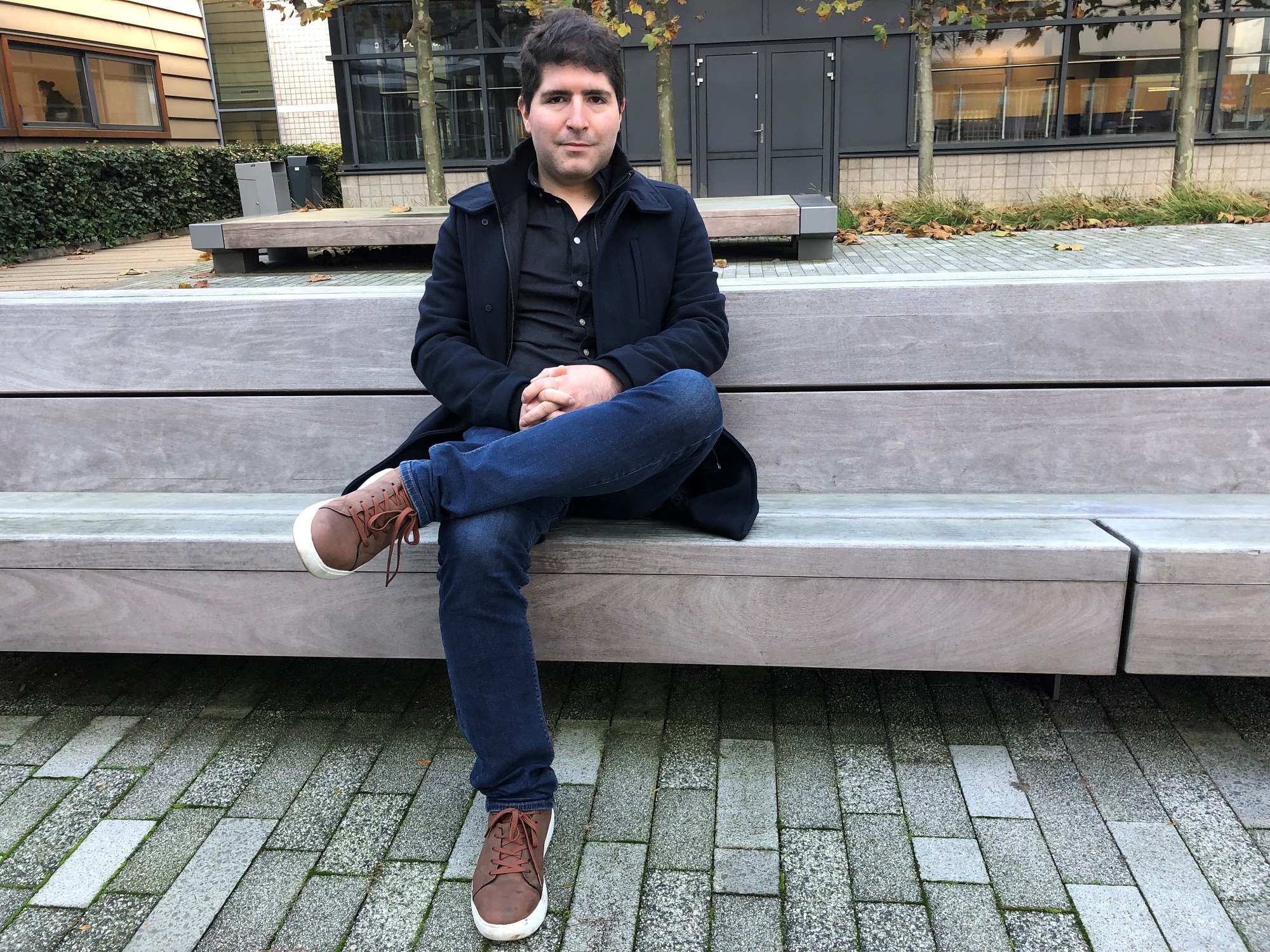Having experienced some unexpected challenges due to the pandemic, third-year PhD candidate Jose Ignacio Hernandez hopes his story might encourage others.
Jose Ignacio Hernandez: “Maybe we should try to be kinder to ourselves.” (Photo: personal collection)
“I do research with choice modelling, where we try to model choices people make and extract behavioural knowledge. I’m working with a particular method called participatory value evaluation. Instead of doing survey polls in which we ask for people’s opinions, we put people directly in the chairs of policy makers in a virtual environment, and we make them face a policy dilemma.
During the first year of my PhD, just after my Go/No-Go meeting, my supervisor told me they were planning on conducting an experiment about the preferences of people towards lifting Covid-19 restrictions. This was in April 2020 during the first wave and the first stage of the lockdown in the Netherlands. We didn’t know much about how to proceed with a lot of aspects. Video meetings were new to us, we were used to meeting with people to design the experiment, and we didn’t have too much time because we wanted to complete this before the government would announce new relaxations.
‘It was shocking for me at the time, but we managed well’
Considering the Covid situation, we didn’t expect so many people to participate in the survey. We decided to open it to the public, and on the first day we had almost 25,000 people trying to complete the survey, and the server collapsed. From the very first day we started, we had to deal with these kinds of situations while we were locked in our homes. We had to try to solve things as quickly as possible because we didn’t want to lose the opportunity to get so many responses. We had to find ways to adapt to the situation and solve some issues in a very short period of time. I have to admit it was shocking for me at the time, but we managed well. We were very happy to see what we achieved with such a small team of people in a short period of time. But the next week we all took a two-day break because we really needed a rest.
The aim of TU Delft is for us to be independent researchers, and this was a great opportunity to experience that and to take responsibility for what we do. As a PhD student you may feel like you don’t have the experience or leverage to make certain decisions. And sometimes PhD students think they have to do things as perfectly as possible. I often make that mistake, and I think it’s human to try and be a perfectionist. But maybe we should try to be kinder to ourselves. We should realise we are not in an optimal setting for doing research right now with the pandemic.
The funny thing is, this research was not initially planned to be part of my PhD. But we realised that the data that we had collected and the context were very compatible with the ideas I had for my PhD. And now, all of a sudden, this is becoming a major part of the applications of the methods I’m proposing in my PhD. I would say it was a happy accident.
So, I have some words of encouragement for PhD students doing research these days. We should try to adapt to the situation we have at the moment. We have to keep up good communication with our supervisors. Most importantly, you have to keep your physical and mental health in check. This is especially important when it comes to the feeling of loneliness. I have to admit that for me, the Covid situation has made me rethink how important physical and mental health is during your PhD. Taking short breaks, taking walks, calling friends or checking up on friends, it’s very important.”
Want to be featured in Humans of TU Delft? Or do you know someone with a good story to tell? Send us an e-mail at humansoftudelft@gmail.com
Do you need help?
- You can reach the TU Delft student psychologists at #. There is an 8 to 10 week waiting list, but there is also a daily walk-in hour.
- TU Delft’s psychologists have published some tips and tools for studying during the corona crisis. For example, there’s a web page on recognising psychological problems.
- Motiv organises support groups and individual consultation. They also have a student support line: 015 2006060.
- You can also call Victims Support Netherlands: 0900-0101.
- Is there a suicide risk? Mostly, 113 Suicide prevention can offer help in English.
- Are you worried about someone else? Please contact ‘Meldpunt Bezorgd’. You can call their number 0900 040 040 5. Or visit their website (in Dutch) for more information. This service is meant for people living in Delft. Does the person you are worried about not live in Delft? Please contact the general practitioner, 112 or 113 depending on the situation. In case of a crisis please always contact 112.
- Since march TU Delft students can join online peer-to-peer sessions hosted by X. The online meeting start every work day at 6 pm.
Heather Montague / Freelance writer



Comments are closed.